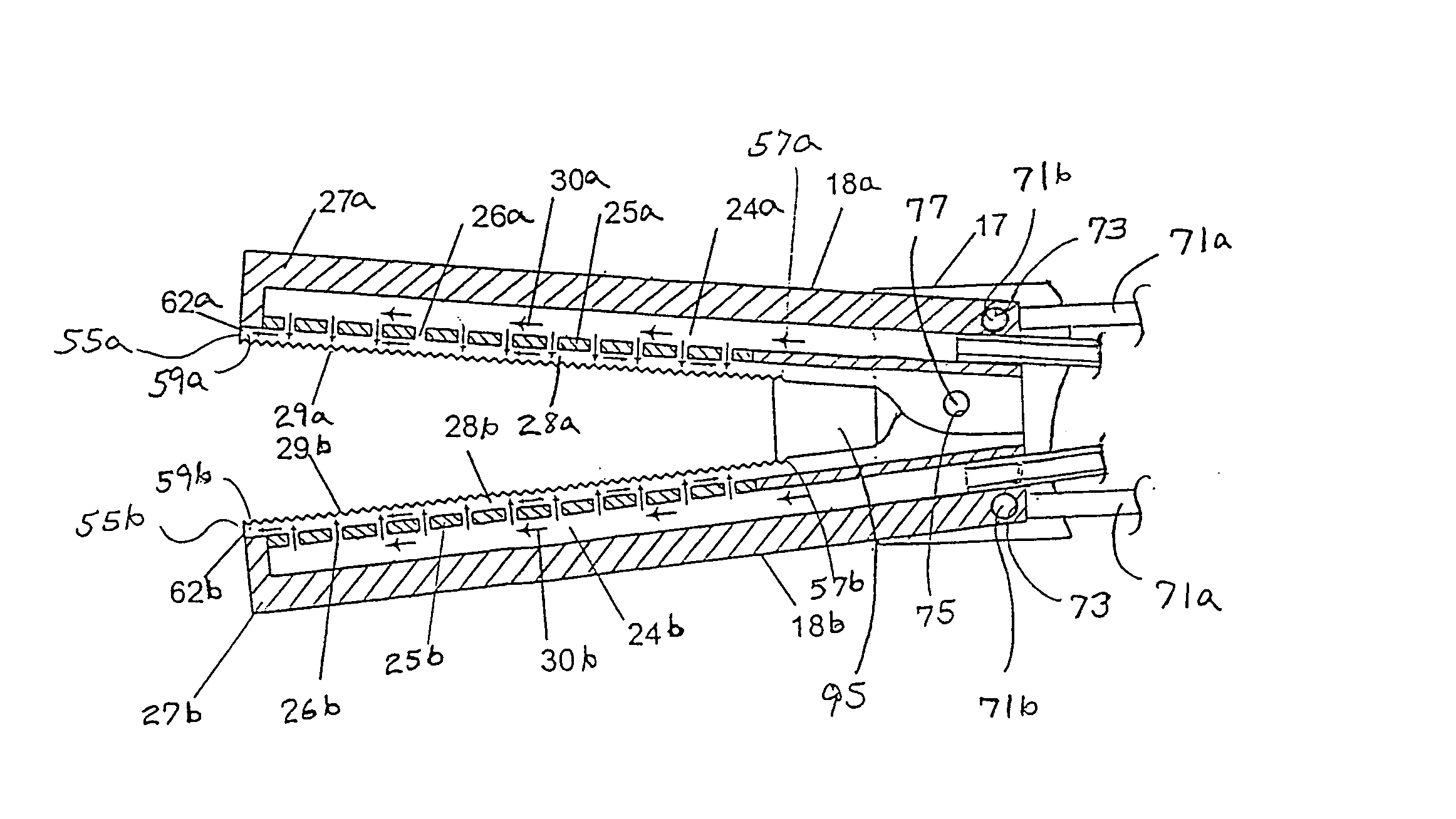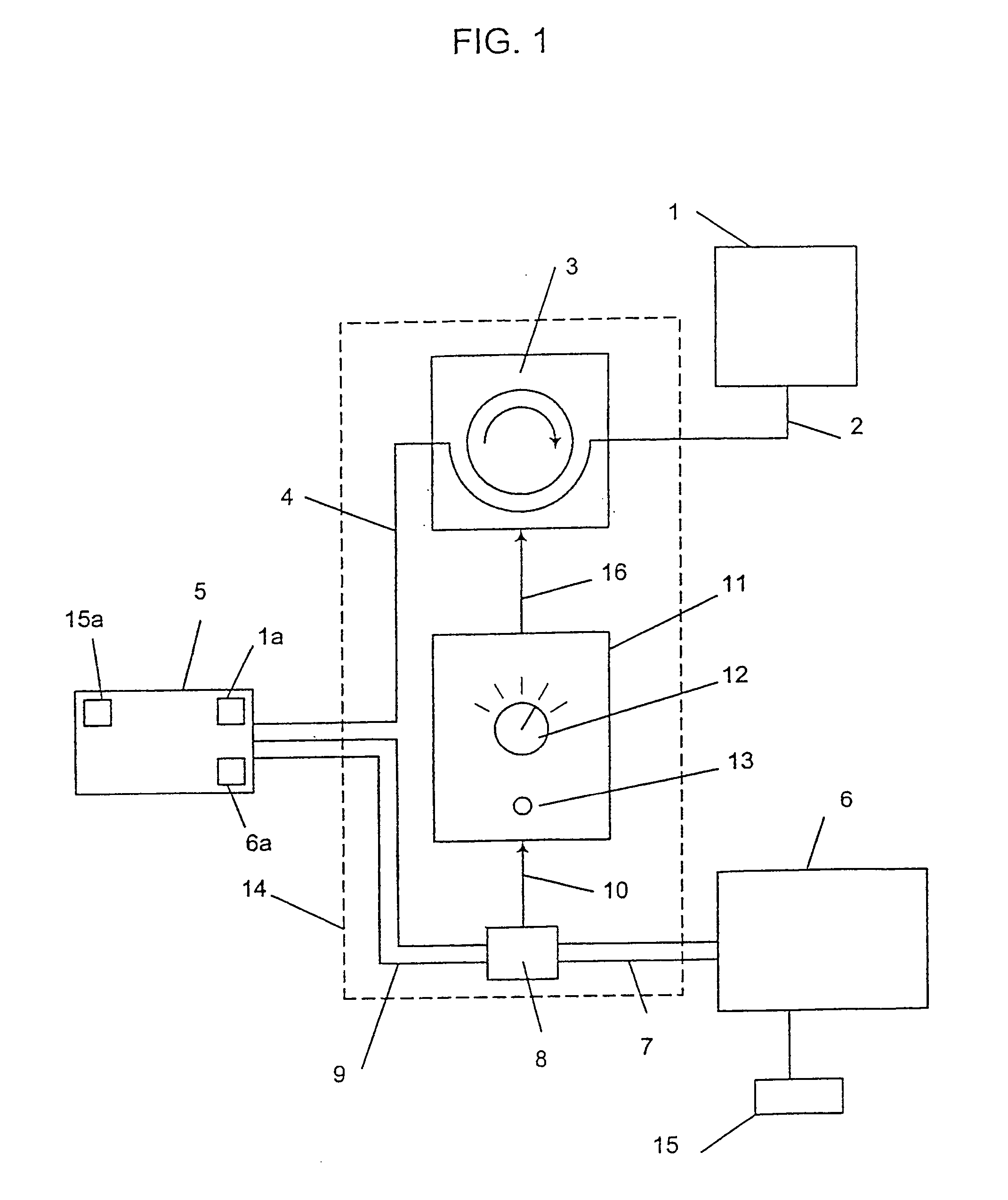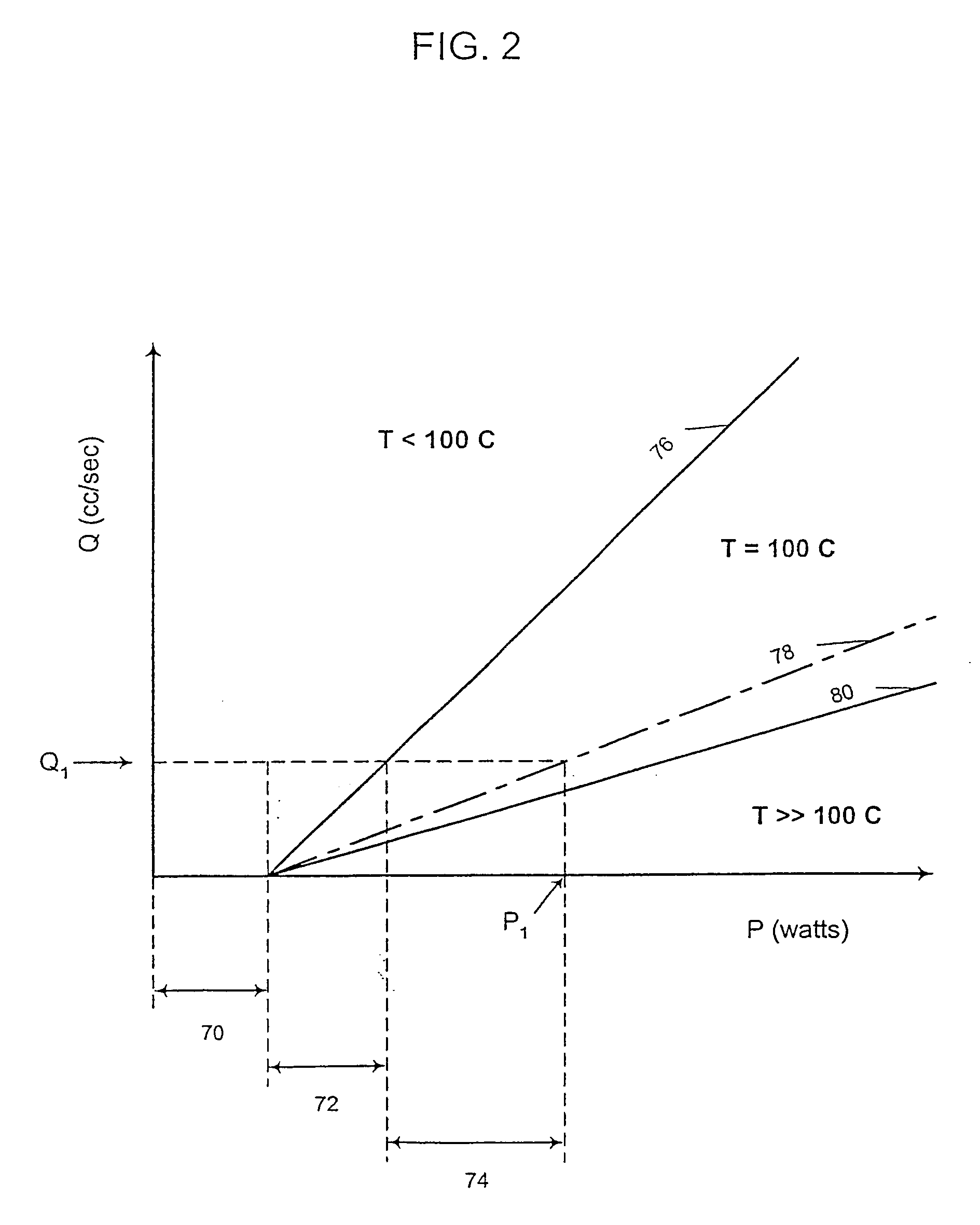Fluid assisted medical devices, fluid delivery systems and controllers for such devices, and methods
a technology of assisted medical devices and fluid delivery systems, applied in the field of medical devices, methods and systems for use upon the tissues of the human body during surgery, can solve the problems of unintended thermal damage to the tissue, tissue desiccation, tissue sticking to the electrodes, etc., to improve the speed of tissue coagulation, improve the effect of tissue coagulation speed, and effective manner
- Summary
- Abstract
- Description
- Claims
- Application Information
AI Technical Summary
Benefits of technology
Problems solved by technology
Method used
Image
Examples
Embodiment Construction
Throughout the present description, like reference numerals and letter indicate corresponding structure throughout the several views, and such corresponding structure need not be separately discussed. For elements similar to the various exemplary embodiments of the invention, an attempt has been made to hold each reference character within a particular numerical series constant. In other words, for example, an element referenced at 10 in one exemplary embodiment is correspondingly referenced at 110, 210, and so forth in subsequent exemplary embodiments. Thus, where an exemplary embodiment description uses a reference numeral to refer to an element, the reference numeral generally applies equally, as distinguished by series, to the other exemplary embodiments where the element is common. Furthermore, any particular feature(s) of a particular exemplary embodiment may be equally applied to any other exemplary embodiment(s) of this specification as suitable. In other words, features be...
PUM
 Login to View More
Login to View More Abstract
Description
Claims
Application Information
 Login to View More
Login to View More - R&D
- Intellectual Property
- Life Sciences
- Materials
- Tech Scout
- Unparalleled Data Quality
- Higher Quality Content
- 60% Fewer Hallucinations
Browse by: Latest US Patents, China's latest patents, Technical Efficacy Thesaurus, Application Domain, Technology Topic, Popular Technical Reports.
© 2025 PatSnap. All rights reserved.Legal|Privacy policy|Modern Slavery Act Transparency Statement|Sitemap|About US| Contact US: help@patsnap.com



